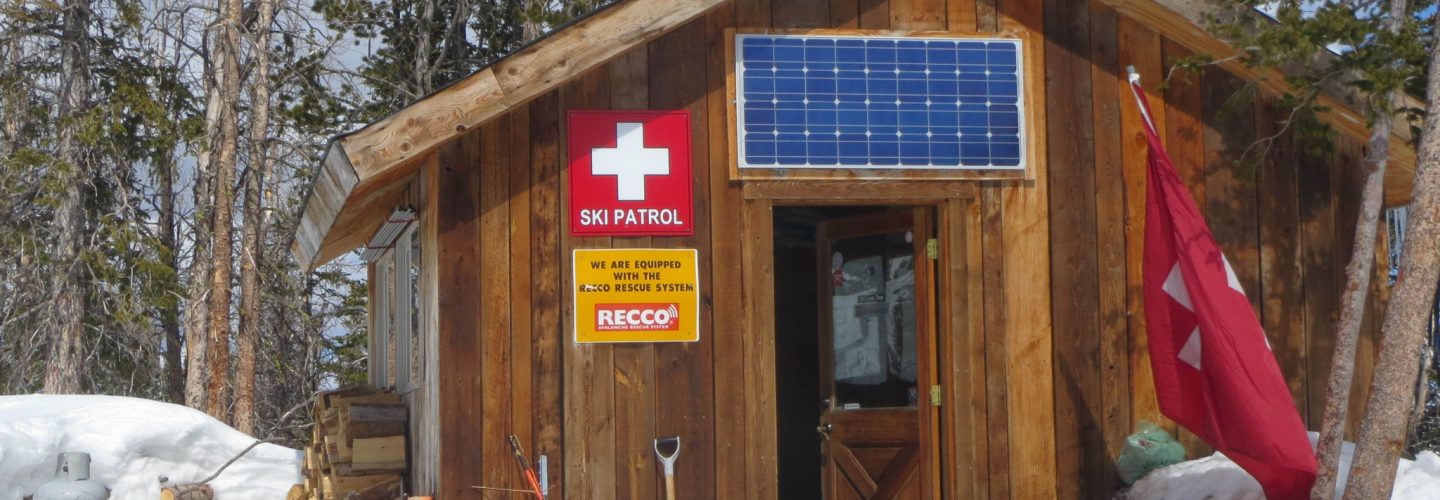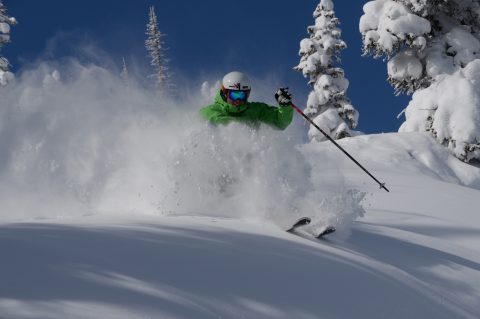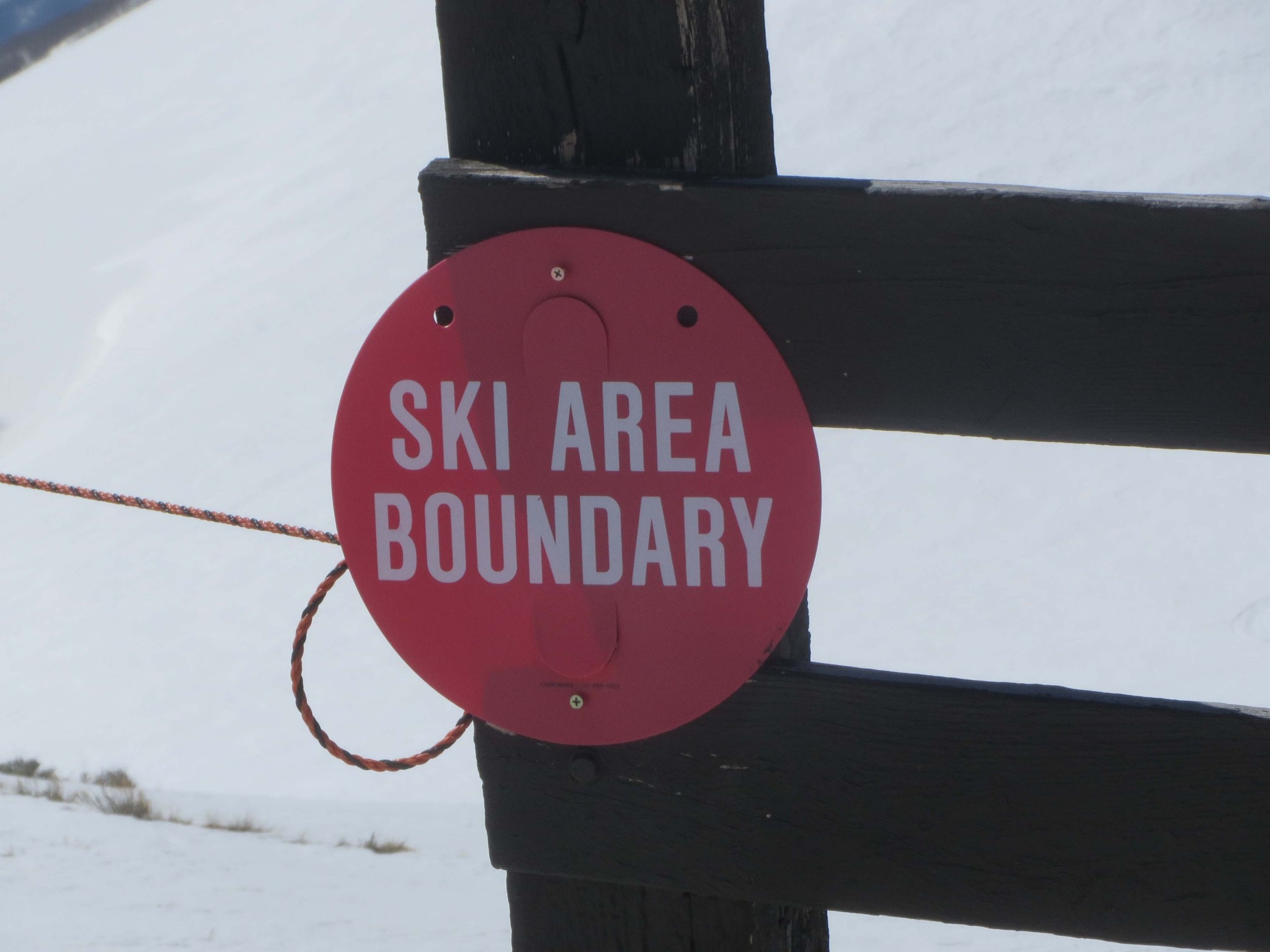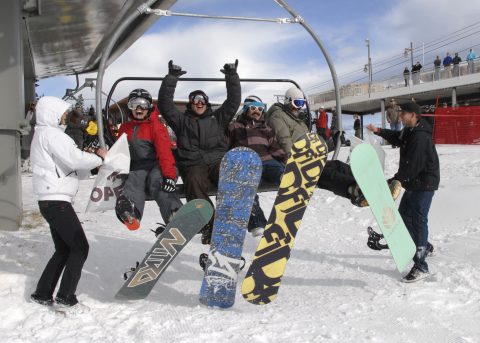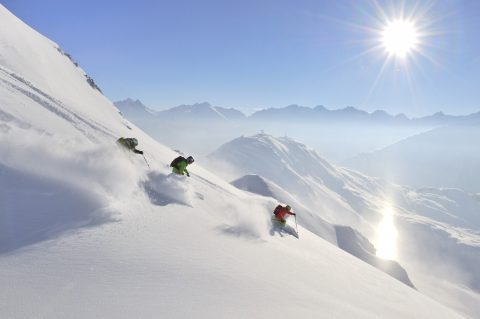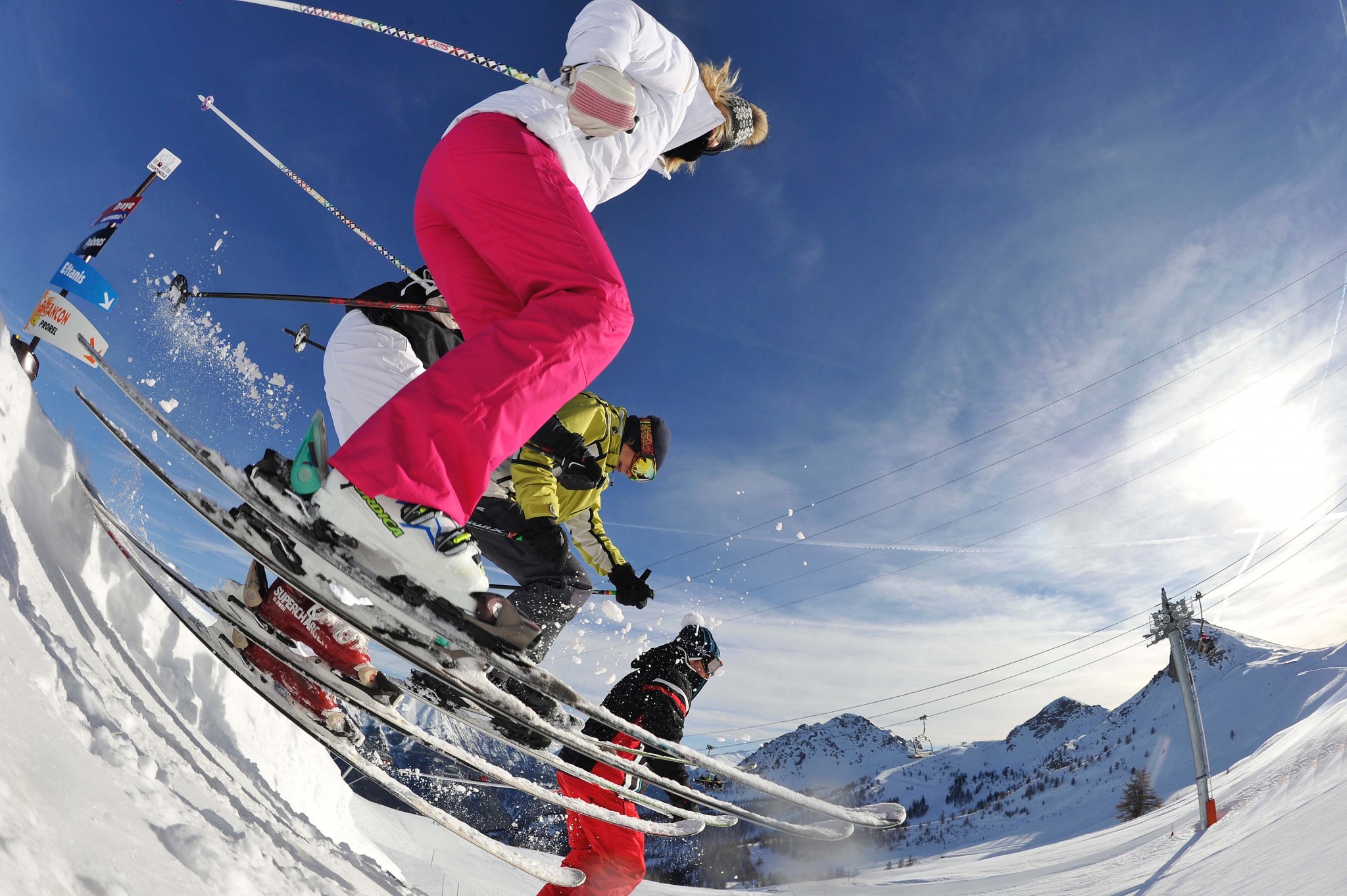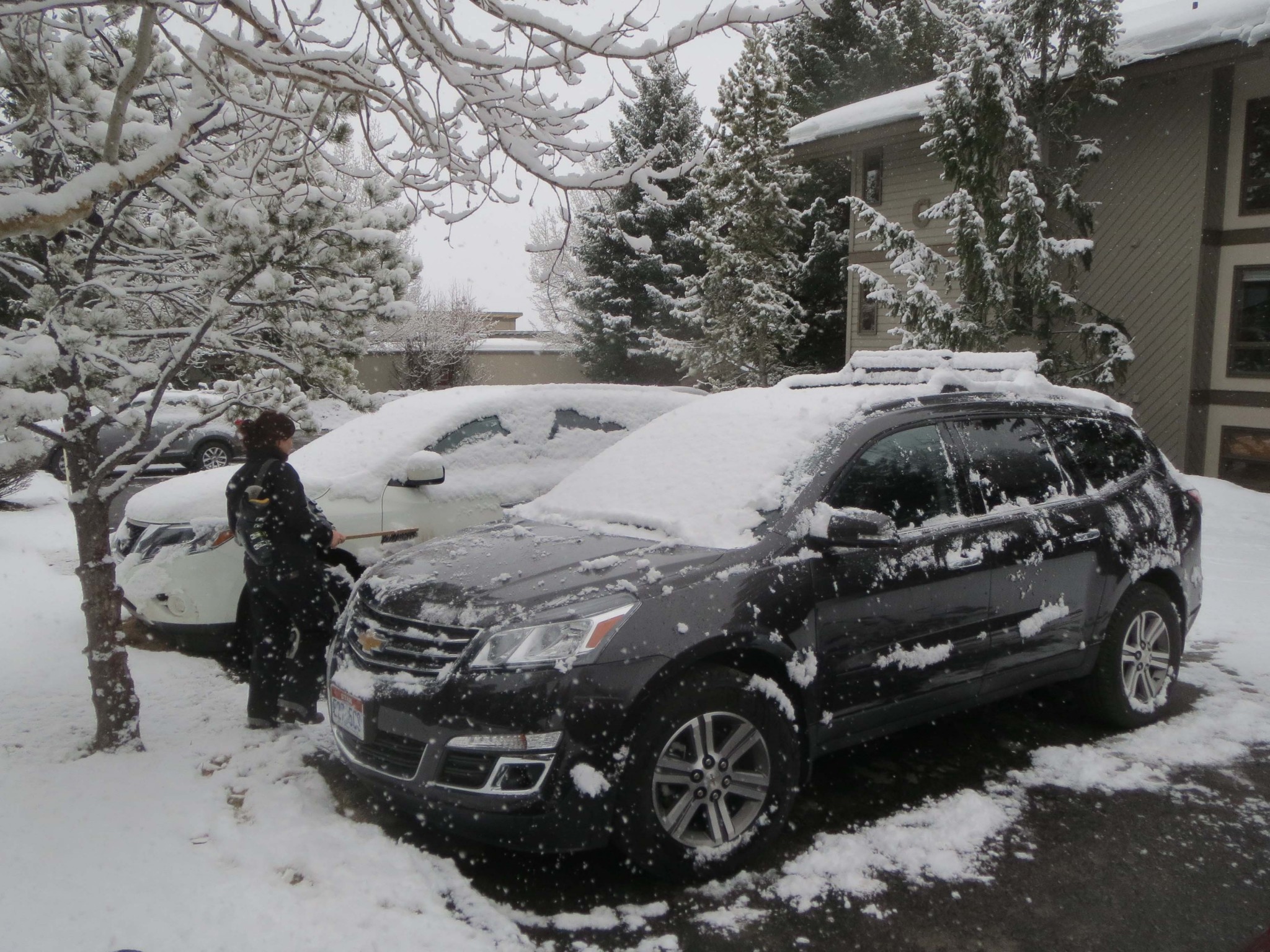At the start of each season, and usually right the way through it, our editorial offices here at InTheSnow are inundated with news releases from companies concerned that skiers and boarders stay safe and protect themselves on their ski holiday.
OK, most of these companies have some vested business interest in us needing their services on one aspect of ski holiday safety or another, but still their advice and expertise is usually good and the Foreign Office and ABA also has their own public skier safety campaighn going.
The main problem is that there’s so much advice it rather takes the fun out of planning your ski holiday, and thinking about what can go wrong too much make you wonder if you should go skiing at all, or even leave the house, but still it is important to be aware of what can go wrong, and try to be prepared.
“Most of the time, nobody will run into any trouble, but to ensure a safe and enjoyable trip, it’s important to stay vigilant on your winter sports break so being prepared is key,” says Five-time Olympian Graham Bell, who is part of that joint Foreign Office and ABTA #ski safe campaign, of which there is more below.
Graham sums up the spirit of the #SkiSafe campaign and indeed this article when he adds,
“…But far from wanting to discourage people from going away this year, I just want to make sure that everyone is taking the necessary precautions to make their trip as fun as possible. Have a look at my top tips for some of the main things to take note of both on and off the slopes”
So here goes with our (as) quick (as it can be) checklist of what to be wary of before you leave home and should be prepared for before you even arrive on the slopes…
1: Don’t Scrimp On Your Ski Travel Insurance
Brexit (yes it had to come in to this somewhere!) …that thing that hasn’t actually happened yet but which the majority of people who voted voted for in that referendum last summer, is driving up holiday prices and Eleanor Armstrong, a senior associate in the travel team at BL Claims Solicitors is worried that means we might cut corners when it comes to ski travel insurance. BL Claims Solicitors don’t recommend that,
“Our advice would be that the need for good travel insurance is greater than ever before,” says Eleanor, “Serious skiing injuries are rare but they do happen – and the financial cost for those who are uninsured or under-insured can be significant.”
Examples BL Claims Solicitors give are a helicopter trip to hospital could cost between £2,000 and £5,000, while repatriation from Europe with an injury such as a broken leg can rack up fees in excess of £10,000.
“The most important thing is to check the cover levels and small print to check the policy is right for you. It should include cover for any sports you’re planning on – heli-skiing, skidoo and tobogganing can lead to uninsured injury as travellers may not realise they need specific cover for these activities,” says Eleanor, above, who also has the following top five tips for skiers:
* Be aware that many insurers require skiers to wear a helmet – so check carefully to see if this is a requirement. Some ski schools require children to wear helmets before they can take part in lessons.
* Don’t rely just on the European Health Insurance Card (EHIC) the old E111. This is not a viable alternative for travel insurance for a ski break, where the risks are considerably higher than a normal sunshine holiday.
* Check local ski rules. Insurers can withdraw cover if you have an accident when in breach of local rules or authoritative advice.
* Watch your alcohol intake during the day and at the apres ski. Drinking at high altitude can make you feel drunk more quickly than usual – and you may not be covered when under the influence.
* If you are involved in an accident on piste, you are obliged under the International Ski Federation’s Rules of Conduct to exchange details with the other party. It is helpful to keep details of your insurance policy with you, including the policy number and the number for its medical assistance team.
2. Be Safety Aware On The Slopes
Taking it as read that we’ve all followed the advice of BL Claims Solicitors and got our insurance sorted properly, it’s time to move on to the advice of international personal injury experts at law firm Irwin Mitchell who give us their top tips for a safe holiday on the slopes this season.
They’ve even created an online interactive game where you can test your ski slope safety awareness.
Expert international personal injury lawyers at Irwin Mitchell have represented hundreds of clients who have been seriously injured as a result of winter sports accidents over a period of more than 25 years they say.
“On holiday, we’re more likely to try extreme sports and sometimes sport is the object of our trips, such as a skiing holiday. While skiing is great fun for all the family, accidents are likely in such a sport and can be very serious,” says Demetrius Danas, a partner and expert international personal injury lawyer with Irwin Mitchell, who has a special interest in skiing and other winter sports, who adds:
“We have represented many holiday-goers who have suffered life-changing injuries after a skiing accident and have had to take substantial time off work, which can affect their finances and quality of life. We provide them with legal advice and support through their rehabilitation but many of these injuries could and should have been avoided.”
Irwin Mitchell’s top tips for safe winter sports are as follows:
- Avoid ill-fitting skiwear
When hiring ski equipment, it is important to check that it fits properly and is in good condition. Damaged or ill-fitting equipment will not give you the same protection as good fitting gear. It is also important to ensure that your ski-wear has the correct level of insulation and protects you from the extreme weather conditions that you can encounter on the slopes.
- Chair etiquette
An attendant is often on hand to oversee skiers getting on and off the ski lift, but it is important to make sure you take control of your own safety. Always ensure that the bar is completely lowered and keep your skis out of the way of the mechanism while riding.
- Check For Visibility
Fog or snowfall can, without warning, make it extremely difficult to see ahead of you. If visibility is poor consider whether it is safe to continue skiing. Trees, sudden drops and other skiers all pose significant threats if you are on a slope in bad weather, however familiar you may be with it.
- Don’t overexert
If you are new to skiing, you may not be aware how physically tiring it can be. Lessen your susceptibility to common aches and strains by getting into a regular fitness regime before your trip and eating a high-protein diet for energy.
- Keep control
Skiing at high speed can increase the likelihood of an accident. Always ski at a safe speed for you and those around you, and check whether any of the slopes in the resort have a speed limit.
- Travel with a partner – off-piste
Always consider skiing with another person. Skiing alone makes it incredibly difficult to raise an alarm should you get into any sort of difficulty.
- Look for icy patches on the slopes
When the snow compacts, icy patches can easily form on slopes, creating a much higher falling hazard. Pay attention to weather warnings and consider avoiding icy slopes if you are not confident skiing on ice.
- Beware of unmarked trails
If you choose to ski on an unmarked trail, you are putting yourself in danger of becoming lost or injured in an unexpected avalanche or fall. Safe routes are marked for a reason and your insurer may not cover you if an accident takes place out of resort boundaries.
- Sufficient training
If this winter is your first time on the slopes, make sure to book some skiing lessons in before you head down the slopes to minimise the likelihood of an accident. If you haven’t been skiing for a long period of time, it’s also worth getting refresher lessons so you’re as comfortable as possible on the slopes.
3. Be Safe Off the Slopes as Well As On The Piste
The Foreign Office (FCO), ABTA, the biggest British tour operator Crystal and five-time Olympic skier Graham Bell have all got together to urge winter sports enthusiasts to be safe on the slopes with a campaign called #SkiSafe
Some of their advice overlaps with our two lists of suggestions above, but there are additional points too.
First off they too stress the important of adequate travel insurance that specifically covers all the versions of winter sports you’re thinking of trying. They’re particularly reprimanding of oldies, who they say are the worst when it comes to checking they have the right cover.
“Those most likely to travel without the appropriate cover were in the over-55 age bracket, with almost half of that group (46%) admitting that they never check that they are covered for winter sports. This is significantly above the general average of 33%,” an FCO statement informs us.
There have been, the FCO says, 58 British deaths and 118 hospitalisations from skiing and snowboarding holidays reported to the FCO in European resorts in the last four years, with thousands more suffering injuries both on and off-piste
Here are Graham Bell’s top tips for a safe trip this winter:
- Besides your correct ski travel insurance, remember to take your free European Health Insurance Card (EHIC) along with you, for necessary treatment at public hospitals in Europe.
- Get fit for the slopes by doing ski-specific exercises that work the quads, glutes, and core. Try to include balance and co-ordination into your work-out.
- If you’re a first time skier, make sure you pick a resort that is suitable and will help you to progress. Look for lots of blue runs, and a beginners’ area close to town.
- Use the right equipment including a properly fitting helmet
- When you’re on the slopes make sure you are using appropriate safety equipment, and familiarise yourself with the International Ski Federation guidelines so that you don’t put yourself at risk of a collision.
- Don’t forget the sunscreen! You can burn in the mountains even in the middle of winter because of the reflection from the snow.
- Make sure you’ve got appropriate footwear for use off the slopes, or get yourself a pair of rubber snow grips to put over your shoes.
- Keep in mind that alcohol and winter sports don’t mix. The effects of alcohol are multiplied at altitude, so save it for the après-ski.
- If you’re heading out in the evening, make sure to stick together with friends and family. Temperatures can drop dramatically at night, so you don’t want to end up getting lost.
ABTA has more advice for people heading on a winter sports holiday at www.abta.com/wintersports
The FCO have a ‘Travel Aware’ travel safety campaign, which aims to advise all British nationals travelling abroad, encourage responsible travel and reduce preventable consular cases.
4. Protect Your Gear
One in eight people (14%) have had their ski or snowboard equipment stolen or lost whilst on holiday, according to the Ski Club of Great Britain (Ski Club), which, incidentally, provide just the comprehensive winter sports insurance the organisations above are warning you ought to be taking out.
Ski Club’s research shows that despite the expense of buying gear, ski and snowboarders could be considered complacent when protecting their equipment, with 61% making no attempt to mark or identify their kit.
A survey the club carried out found that over a quarter (28%) do not take security precautions when leaving their skis or snowboard unattended, for example whilst enjoying lunch or après ski. Only one in 20 (4%) use secure facilities to store their equipment, meaning the majority of equipment is an easy target for thieves.
In a bid to promote better security on the slopes, the Ski Club of Great Britain offers eight tips to help prevent theft and its distressing consequences:
* Mark your equipment with your details – initials, phone number, or the hotel/chalet you are staying at. This will make sure your equipment is recognisable, and if lost, can be easily returned to you.
* Take a picture or keep a record of any serial number on skis and snowboards so that items can easily be reported to the police, and returned if they are found.
* Where possible, use secure ski lockers or boot rooms in hotels and other accommodation.
* If there are no secure storage options, swap one of your skis with a partner and separate the odd pairs far away from each other.
* Take a picture or make a note of where you left your equipment. Place any ski poles over your skis to prevent an accidental mix-up with other skiers and to make it harder for poles to be stolen.
* If you hire your equipment, take a picture or note the serial number of the skis or the number on the hire shop bar code sticker.
* Investing in good quality ski and snowboard locks can help deter thieves.
The Ski Club also advises that in case the worst does happen remember to keep proof of purchase or rental receipt of your equipment as it is usually needed when making a claim.
5: If You Self Drive, Be Ready For Real Winter
iCarhireinsurance.com, who tell us they are, “the leading provider of stand-alone car hire excess insurance,” point out that if you rent a car from the airport to resort it is It is your responsibility, not the rental company’s, to ensure that the hire car is equipped for the wintery conditions they are driving in.
“This can be a challenge when the rules on winter tyres and snow chains differ from country to country,” says an iCarhireinsurance.com spokesperson, who tell us,
Winter tyres, for instance, are mandatory in Germany and Austria (where driving without winter tyres between the start of November and mid-April can lead to a fine of around €5,000), while they are ‘recommended’ in Switzerland, Andorra, Bulgaria, and Italy, however vehicles which are not equipped to travel through snow, and which impede traffic, may be fined. In France, winter tyres are not mandatory but in snowy conditions special signs can indicate that they should be used. (Source: AA and RAC)
Car hire companies offer a ‘winterisation’ charge which includes the price of winter tyres and/or snow chains, and can normally only be paid for at the rental desk.
When they did a little research iCarhireinsurance.com found the average ‘winterisation’ fee across the six destinations was £43, but travellers could pay up to £95 in Barcelona with Avis, falling to a more reasonable £49 if hiring from Europcar in Grenoble and down to £19 in Sofia, hiring from Sixt.
“Many travellers do not realise that the onus is on the driver, not the hire company, to know the rules and regulations of the country they’re hiring in,” said Ernesto Suarez, CEO and founder of iCarhireinsurance.com. “Police roadblocks near to ski resorts are common in the Alps, for instance, and police will refuse entry to a car without chains if it’s a designated ‘snow chain’ area. The driver may also have to pay a fine.”


